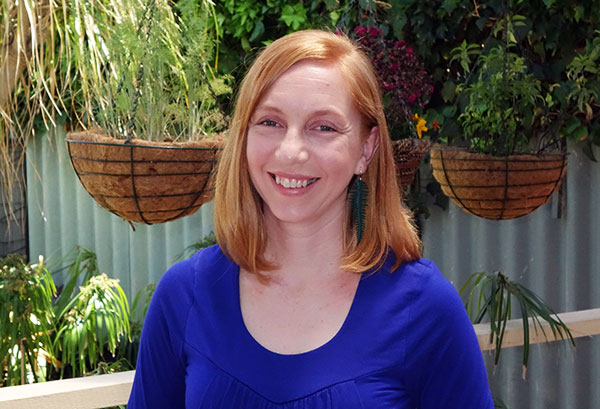UWA and me
I seem to be drawn back to UWA again and again! I completed a Bachelor of Science here, majoring in Geography and Zoology and, after working for a few years, I came back to UWA to complete a PhD in Geography. I spent most of my time living in Honduras and Colombia while studying the role of biodiversity in smallholder farming systems. After working with an international conservation NGO, I eventually returned to UWA to pursue research and teaching in environmental management, particularly focusing on the relationships between people and the biological resources that sustain them.
Right now, I’m working with an amazing group of researchers from around the Asia-Pacific region to understand how communities in rural Fiji and Cambodia cope with increasing frequency and severity of natural hazards such as floods, cyclones and drought - under conditions of environmental change. The project is funded by the Asia-Pacific Network for Global Change Research. In Fiji, many people living in coastal and estuarine regions rely heavily on artisanal fishing for income and, to some degree, nutrition. They are having to adapt their long-held methods and knowledge of how and where to find different species in response to rapid climatic and environmental change.
Balancing the human-environment relationship
I absolutely love the natural world. The variety of life on earth has always fascinated me. When I first graduated from UWA, I wanted to pursue a career in biodiversity conservation. I am still passionate about this topic, however, the longer I spend studying flora and fauna, the more I realise that farmers and other people who live with and manage incredible natural diversity every day know far more about it than I do. The incredible relationship that these people have with all elements of the natural world is what drives me now. Yes, globally, human activities are largely responsible for the sixth ‘mass extinction’ we are witnessing now. Unless we understand what connects people to other species and habitats, and what policies and activities are going to make a positive contribution to people’s day-to-day lives as well as the sustainable management of biological resources, in my view we risk polarising the issue and making decisions that are not supported by local people.
I want to make a difference with my research and teaching by bringing together the natural and social sciences, and demonstrating that there are positive ways forward for people to integrate biodiversity into functioning urban, rural and coastal systems.
Integrating scientific data and local knowledge
My research is interdisciplinary, drawing on methods from the natural and social sciences. I’ve worked in many habitats and ecosystems and the key element throughout is the people are an integral part of ecosystem functioning, not a separate entity. The projects of which I’m most proud have included biophysical sampling or mapping to gain a scientific perspective on an issue, as well as discussions with local people and land managers to understand detailed, long-held local knowledge and beliefs about what is most important.
In Fiji, for example, members of our research team from the University of Sydney are mapping and modelling the health of mangrove vegetation under past, current and future projected conditions. Other members of the team, including researchers from UWA, University of Auckland and University of the South Pacific, are speaking with villagers about how they use those mangroves for fishing and other resources, which areas are most important to them, and the environmental changes they have witnessed so far. We will work together to integrate scientific data and local knowledge to highlight aspects of vulnerability and resilience for local communities. This sort of integrated, interdisciplinary work will be increasingly important in the future as we tackle very difficult, complex and interrelated social and ecological issues.
About Natasha
Natasha is a geographer with a particular interest in understanding human-environment interactions in the management of biological resources.
Prior to joining UWA, Natasha worked in a variety of situations including as an environmental scientist with a consulting firm in Perth, as an environmental officer with the WA state government Department of Water, and with the Zoological Society of London in international conservation policy. She has gained valuable field experience in a range of ecosystems, cultures and environments including locations in Honduras, Colombia, Timor-Leste, Fiji and Australia.